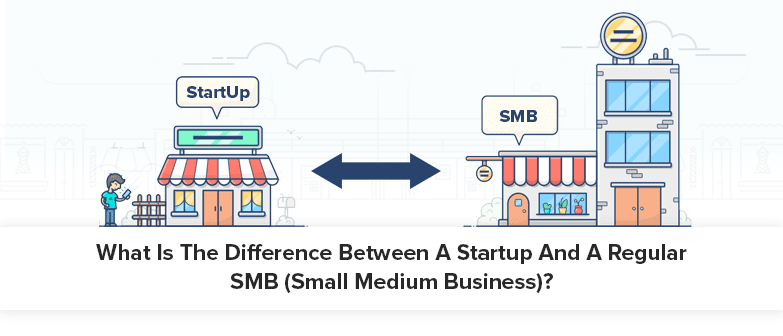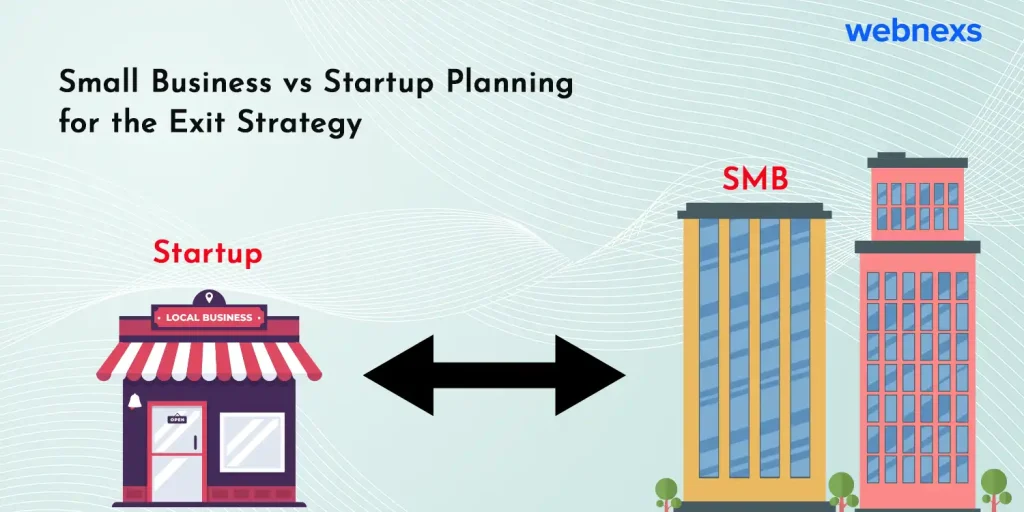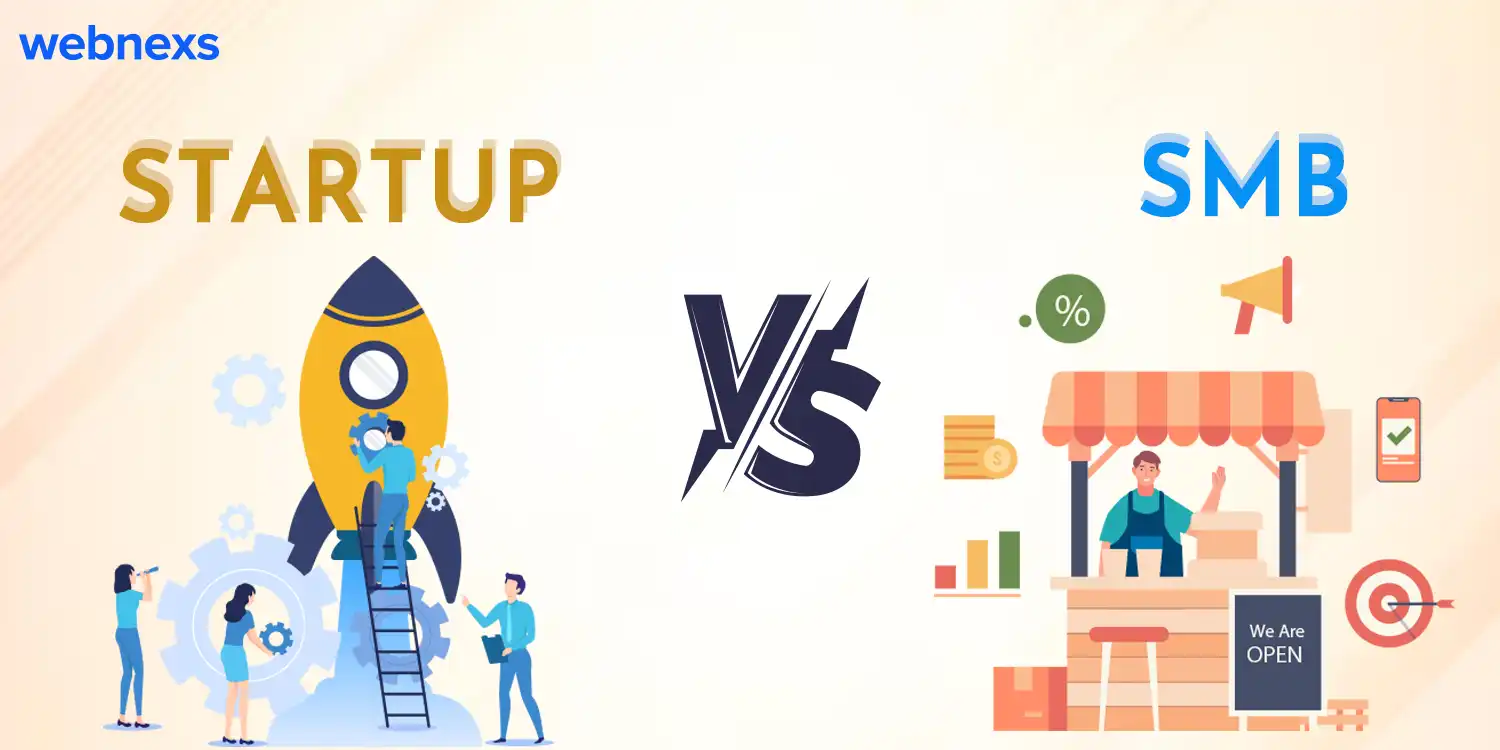The words startup vs small business SMB are thrown around frequently, at times interchangeably. Most of the time, people often get confused with SMB small business vs startup among a few budding entrepreneurs.
Key Takeaways
- Startups and small businesses have distinct characteristics and objectives.
- Startups are often technology-oriented with high growth potential, while SMBs focus on stability and gradual growth.
- Funding mechanisms differ, with startups relying on venture capital and SMBs often seeking debt financing.
- Startups require clear exit strategies to satisfy investors, while SMBs have more flexibility in planning for the future.
- Understanding these differences is essential for entrepreneurs navigating the business landscape.
The biggest difference between startups and small business is their purpose. Smaller industries SMB are driven by profitability and sustainable long-term value whereas startup keeps focusing on initial revenue and growth potential.
Know More: SMB E-commerce Business by Webnexs
The fundamental difference between a startup or a small business is that a startup is related to a time period (which was recently launched) whereas a Small-Medium business (SMB) is related to the measurement (such as the number of employees, revenue).
Learn More: Why Small Businesses Should Choose Multi-Vendor Platform?
Regular Startup Vs Small Business (SMB): Differences To Know In 2024

How Do These Startup Entities Think About Growth In Ecommerce?
Startup differs from traditional businesses because they are designed to grow faster. By design, this means there is something they can sell on the largest market. For most businesses, this is not the case.
Generally, a business does not require a large market to operate. You just need a market, proper ecommerce marketing plan on how to develop and should be able to reach, serve all of those within your market.
Online merchants can go to a big market bypassing their time and space – customers come to buy things from you or use your products, regardless of wherever place you are in. The unique feature of most startups is that they are not controlled by these factors.
What Is SMB (Small-Medium Business) Association Gives It The Best Possible Way

In the business world, the word ‘SMB’ goes ahead of a company just getting off the ground. The term startup is as well related to a business that is normally technology-oriented and has high growth potential.
Initially, SMBs may face some personal struggles, particularly financial ones. That is for the reason that investors are in search of the highest potential return on investment while matching the associated risks.
And one thing that you need to keep in mind is, “Not all technology companies have a very large market”. To grow rapidly by knowing startup vs small business, you need to build something impressive that you can sell to a very big market. Webnexs offers ecommerce platform SMB migration for businesses.
Read More: 10 Significant Features for SMB Ecommerce Business

Relationship With Funding In Regular Startup Industry
Apart from having different ideas about “growth”, the startups are looking for different financial investment than small business operations. The startups depend on capital coming from investors or venture capital companies, and Small-Medium Business (SMB) activities may depend on debt and subsidies.
An interesting fact about venture capital is that it will have a more efficient role in any of the companies they provide. While a small business provided with a loan may occasionally need to report back to their bank, a startup with a backing will probably be getting a bit more help.
They will receive the investor’s advice if you are young and inexperienced, there is nothing better than help. This is true for those teams or individuals who will become part of an accelerator or insurance plan.
Small Business vs Startup Planning for the Exit Strategy

Another thing you want to remember is your vision for your business on both startup vs small business. If you get into venture capital financing without an exit strategy, you do not have the chance to get it.
Venture investors need an exit strategy because they want to increase their ROI. If you want to run the company within 10 years, you would like to ensure that the exit plan comes in a fixed income stream format, allowing investors to pay, an IPO instead of buying out, or choosing a different strategy – your own financial or credit or subsidies, or government.
“Exit Strategy” development is not a problem for your own business, at least until you make it big or change your mind about owning the business. The fact is, in a traditional business (not a start), you do not need an exit strategy at the beginning.
You will be fully responsible for your company’s future, whether you are running or not to sell or sell it to other parts of your life, to start or decide on the stock market, or you have to keep it down.
So these are the difference between smb startup. This is how both the business run and thinks while working for their development.
If you still want to know more difference between a regular startup vs small business(SMB), Click Here!

Frequently Asked Questions (FAQs) On Startup Vs Small Business
1. What is the difference between a startup and a small business?
Startups are innovative, high-growth ventures focused on disrupting markets, while small businesses are traditional, established enterprises with stable growth and a narrower scope. Startups often seek venture capital, while small businesses rely on loans or personal savings.
2. What distinguishes a small business vs startup?
The key difference is in their goals and growth trajectories. Startups aim to scale rapidly, often with disruptive technologies, while small businesses have a more steady, local presence. Startups prioritize innovation and seek substantial funding, while small businesses rely on traditional funding sources.
3. Small business vs startup – What about their risk levels?
Startups are high-risk ventures due to their unproven business models and potential for rapid failure. Small businesses, being more established, typically have lower risk. They often have stable customer bases, revenue, and a proven business model.
4. What types of funding do startups and small businesses typically seek?
Startups frequently seek venture capital, angel investors, or crowdfunding due to their need for substantial capital to fuel rapid growth. Small businesses usually rely on traditional financing like bank loans, personal savings, or small business loans to sustain and expand their operations.
5. How can I determine if my business is a startup or a small business?
Consider your business goals and growth expectations. If you aim to disrupt markets, grow rapidly, and seek substantial external investment, you’re likely a startup. If your focus is on steady, local growth with traditional financing, you’re more likely a small business.

Leave a Reply